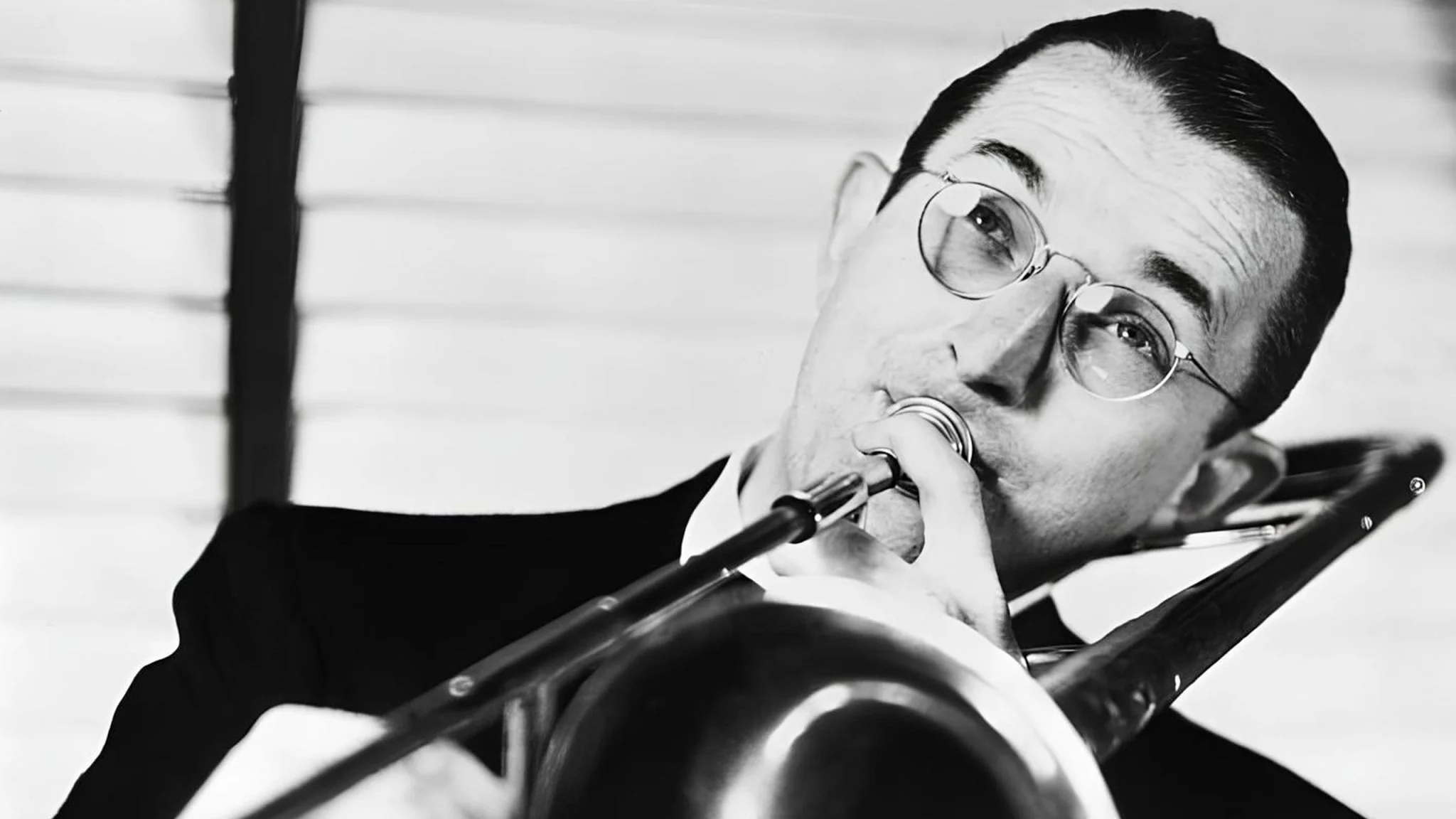The Sentimental Gentleman of Swing
Early Life and Musical Beginnings
Thomas Francis Dorsey Jr. was born on November 19, 1905, in Shenandoah, Pennsylvania. Raised in a musically inclined family, Tommy and his brother Jimmy Dorsey were introduced to music by their father, a music teacher and band director. Tommy initially played the trumpet but later switched to the trombone, which became his signature instrument.
Career Milestones
- 1920s: Tommy and Jimmy played in various bands and co-founded the Dorsey Brothers Orchestra in 1934.
- 1935: The brothers had a well-publicized falling out, leading Tommy to leave and start the Tommy Dorsey Orchestra.
- Late 1930s – 1940s: His band became one of the most successful of the Swing Era, producing hits like I’ll Never Smile Again and Song of India.
- 1939: Hired a young Frank Sinatra, giving him his first major break.
- 1940s: The orchestra became a powerhouse, with hits such as Opus One and Marie.
- 1953: Reunited with his brother Jimmy to form the Dorsey Brothers Orchestra again.
- November 26, 1956: Dorsey passed away in his sleep from choking, at the age of 51.
Musical Style and Influence
Tommy Dorsey was known for his smooth trombone playing, which earned him the nickname “The Sentimental Gentleman of Swing.” His band was famous for blending sweet ballads with swing-era energy, influencing later generations of jazz musicians. His arrangements balanced technical precision with emotional depth, setting a gold standard for big band music.
Social and Cultural Impact
- Launched Sinatra’s Career: Dorsey played a critical role in shaping Frank Sinatra’s early career, influencing pop and jazz singing styles.
- Innovations in Big Band Sound: His orchestra was one of the first to combine swing and classical elements, influencing later big band leaders.
- World War II Influence: His music provided morale-boosting entertainment for soldiers and the American public.
- Integration in Music: Though racial segregation was still a norm, his collaborations with Black artists contributed to the gradual racial integration of American music.
Legacy
Tommy Dorsey’s influence on jazz and swing endures, and his recordings remain essential to big band music history. His work with Sinatra, along with his impeccable trombone technique, continues to inspire musicians and bandleaders today.
YouTube Topic Channel:
https://www.youtube.com/channel/UCxDQrM2JMfe1aVujAnaNlbw
References
- Simon, George T. The Big Bands. Schirmer Trade Books, 1981.
- Friedwald, Will. Sinatra! The Song Is You: A Singer’s Art. Scribner, 1995.
- Chilton, John. Who’s Who of Jazz: Storyville to Swing Street. Da Capo Press, 1985.


Leave a Reply